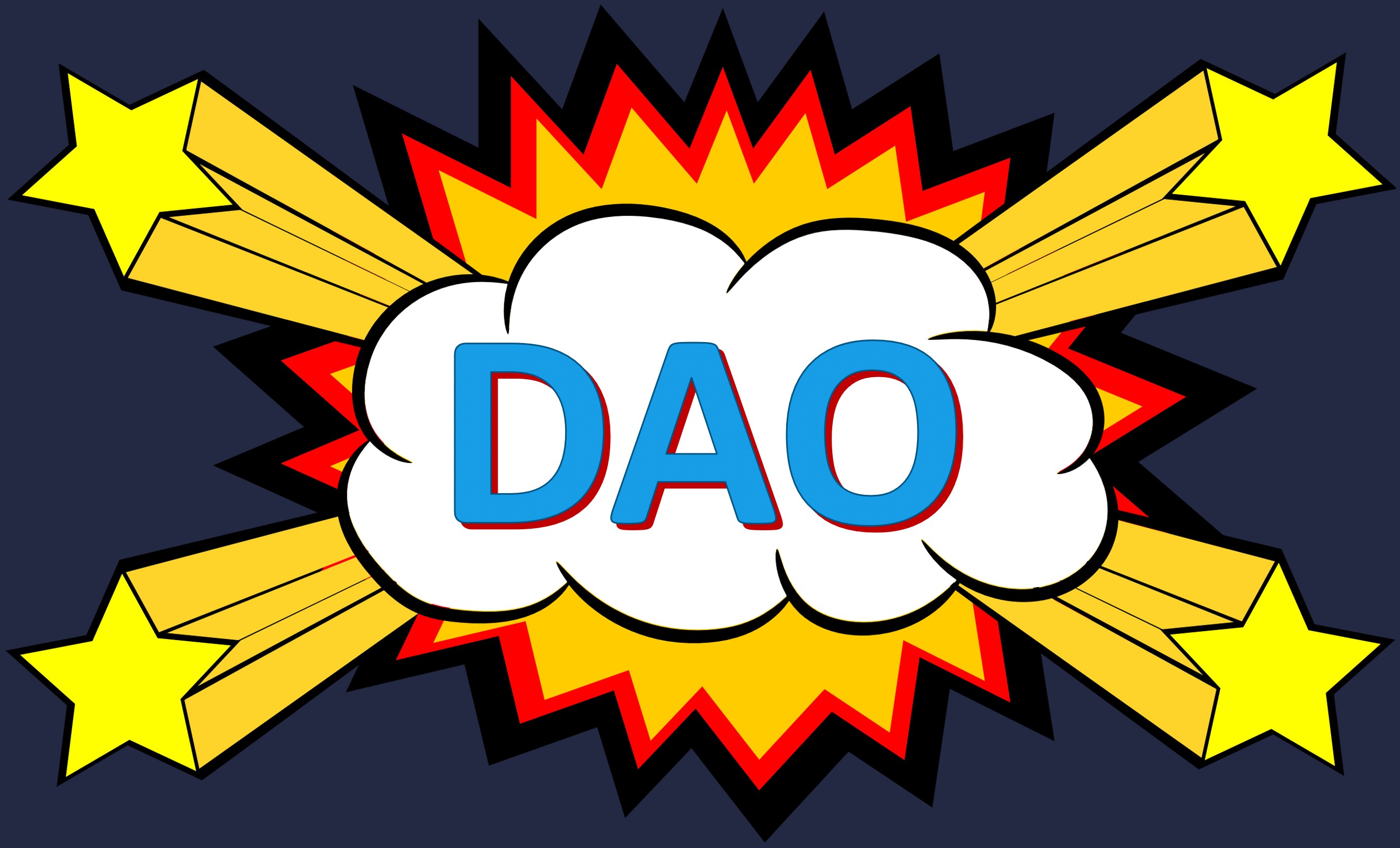Distributed Autonomous Organizations (DAOs)
Governance by Code
A Distributed Autonomous Organizations (DAO) is an organization governed by code, or smart contracts on a blockchain. A DAO functions without the need for a central authority. A DAO can take external information and execute outcomes based on its coded rules without any human intervention. Typically DAOs are operated by stakeholders incentivized through the use of tokens on the blockchain. All rules and transaction records of a DAO are kept on the blockchain and are transparent. A DAO is dynamic. Its rules are decided on by stakeholders’ votes via tokens. Decisions are made within a DAO through proposals that are voted on by stakeholders (token owners). If a predetermined percent of stakeholders vote for a proposal, it is then implemented.
DAOs can operate like a highly decentralized corporation with no hierarchy or bureaucracy, and at a fraction of the overhead cost. DAOs use transparent, economic mechanisms to align the interests of the organization with the interests of its members. With these benefits, you can imagine why DAOs are primed to shake up conventional, high-friction, financial corporations. DAOs can be designed to replace banks, exchanges, endowments, and even nation state treasuries. The financial sector aside, DAOs can streamline operations within government oversight, the legal system, and supply chains - among many others.

Because DAOs are decentralized without hierarchy, no one entity has the authority to make and enforce decisions. Being autonomous on a blockchain allows it to function on its own without central oversight. Once deployed, a DAO is governed by a community of participants. Designed right, a DAO should steer stakeholders towards the most beneficial outcome for the network. It allows individuals and institutions to collaborate, solve problems, and move the organization forward without having to know or trust each other.